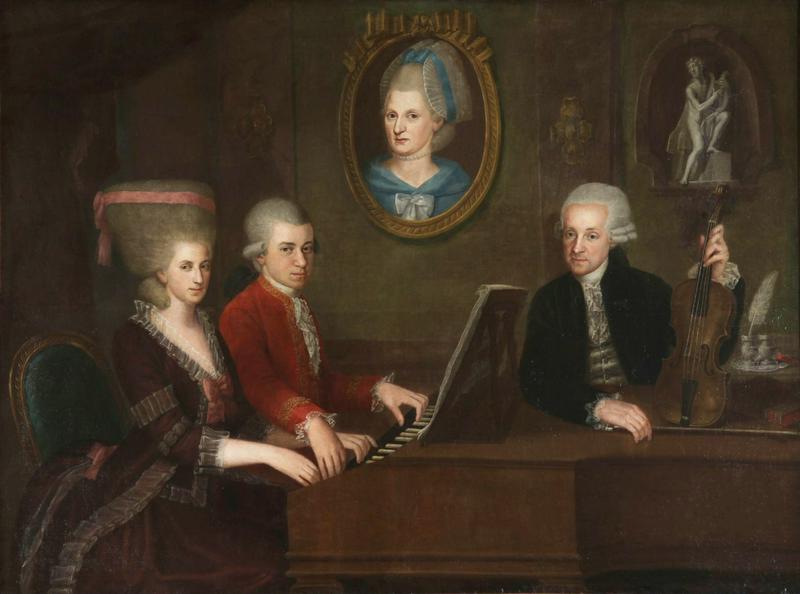Making Music With Mozart
By | November 23, 2019

Wolfgang Amadeus Mozart is one of the greatest classical composers in history. His career was considered the height of the classic Viennese school. So capable was Mozart that he composed in almost every genre of his day and was a master in each one of them. Today, his music is still widely celebrated and well-known in popular culture.

Born on January 27, 1756, in Salzburg, Austria, Mozart was the son of a musician, Leopold, who had written a popular book on the violin. Out of seven Mozart children, only Wolfgang and his sister Maria Anna (called Nannerl) survived to adulthood.
From a very early age, Mozart displayed musical genius. At three who could select chords from a harpsichord and by five, he was composing music. Leopold Mozart said of his son, “The miracle which God let be born in Salzburg.” His father took him and Nannerl, also talented, to play at the royal courts in Bavaria and Vienna. At the Viennese court, the king asked the child prodigy to play with the keyboard beneath a cloth and then blindfolded. This he performed beautifully to the astonishment of the court.

In 1763 Leopold took his family on a lengthy tour of the musical centers of Europe. They played throughout various German cities, Paris, London, the Netherlands, and Switzerland. They did not return to Salzburg until 1766. It was during this tour that Mozart met Johann Christian Bach in London, the youngest son of the famous Johann Sebastian Bach. Bach assisted and influenced Mozart in the composition of his first symphonies. The prodigy composed his first opera by the time he was twelve.

Mozart played with an energetic, playful style that delighted audiences. His skill at improvisation was remarkable as well. Mozart was fun-loving and precocious which emerged in his compositions. Mozart’s teenage years were spent touring Italy where he would play. At the same time, he developed a mastery of the Italian opera styles of the day. He also impressed the Italians with his incredible abilities. Mozart once attended sacred music performances at the Sistine Chapel hear Allegri's Miserere. When he returned to his lodgings he was able to reproduce the entire score by memory.

After a return to Salzburg, Mozart then to Munich in each developing and producing music. Finally in 1781 at age 25 he settled in Vienna as a freelancer earning his living by teaching and performing in concerts. Even as he began to reach the heights of his fame, he was stricken by financial woes that were never fully resolved. It was during these years that he developed some of his most famous works including Le Nozze di Figaro (“The Marriage of Figaro”) in 1786, Don Giovanni in 1787, and Cosi fan tutte in 1790. The uniqueness of his music and the ability to humanize the character in his operas was seminal. Music historians often credit Mozart from not being necessarily the most innovative, naming Johann Sebastian Bach and Joseph Haydn as superior, but being the most creative.

By 1791, Mozart was overworked and possibly depressed. He began to chronically complain about his health, claiming he was poisoned. He then fell sick and died on December 5, 1791. There has been much speculation on the cause and circumstances of his death including theories of homicide which have been mainly discounted. Still, the actual disease Mozart died from is unknown. He had died deep in debt, but his widow Constanze managed to obtain a widow’s pension from the Viennese court and restored her finances by holding memorial concerts for the musical master. Mozart’s death at age 35 was a deep blow struck to the musical world.
Mozart is an icon of classical music and studies have been conducted which purport that listening to his music increases intelligence which has been debated. But this simply shows the impact that this musical genius still has on our lives over two centuries past his death.

